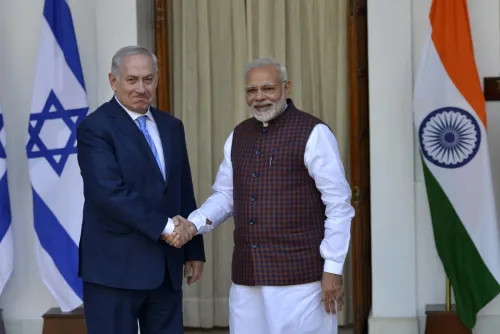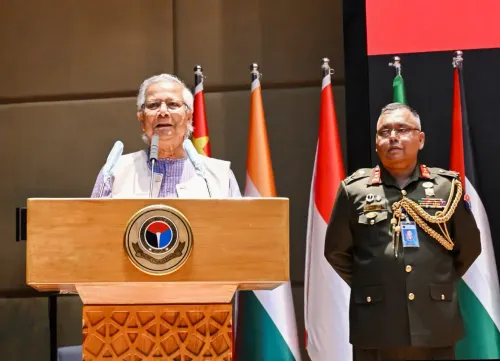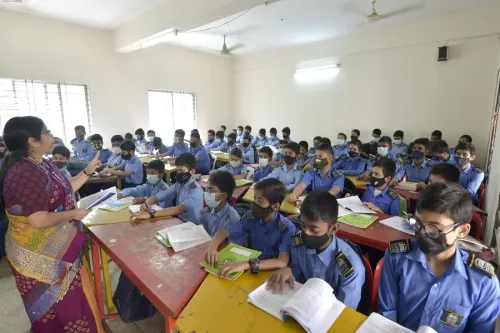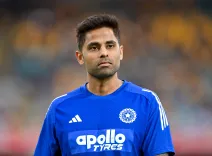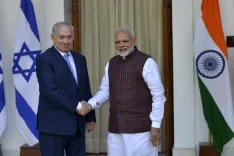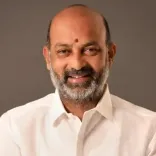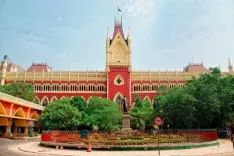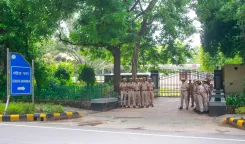How will the May 7 Conclave address the ideological currents in Catholicism and our fractured world?
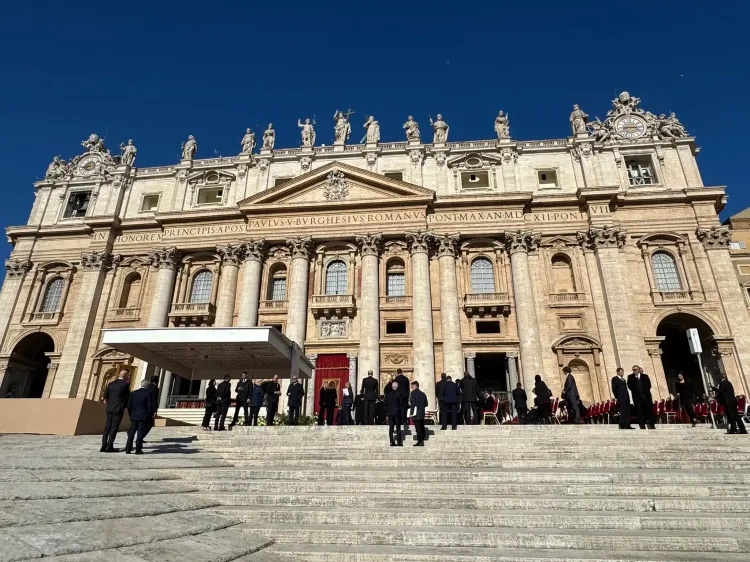
Synopsis
Key Takeaways
- The May 7 Conclave will determine the future leadership of the Catholic Church.
- Cardinals face the challenge of balancing tradition with the evolving global landscape.
- Diverse representation among cardinals reflects the changing demographics of Catholicism.
- The selection of the new Pope will have far-reaching implications for the Church.
- Global issues such as violence and financial instability will shape the new papacy.
Rome, April 29 (NationPress) On May 7, with the solemn proclamation of extra omnes — "everyone else out" — the doors of the Sistine Chapel will close as they have for the election of each Pope since 1492, marking the commencement of the Conclave to elect the new Bishop of Rome. The passing of Pope Francis concludes one of the most transformative — and at times divisive — periods in contemporary Church history. Now, the world's gaze shifts towards the Vatican, where an unprecedentedly global and diverse gathering of cardinals will undertake the significant responsibility of selecting the next Pope.
As conservative Cardinal Gerhard Muller recently stated, "We are meeting to elect the successor of St. Peter, not of Pope Francis", serving as a pointed reminder that the cardinals are not here to continue any specific papal agenda but to uphold the enduring mission of a Church that has persisted for over two millennia. At this pivotal moment, their decision will not only influence the future of Catholicism but will also affect the wider moral and political landscape of a deeply divided world.
The forthcoming Conclave will adhere to the regulations established in the 1996 apostolic constitution Universi Dominici Gregis — a framework largely designed by Pope John Paul II and slightly revised by Benedict XVI — serving as the platform where these vital choices will be made. In a time marked by conflict in Europe and the Middle East, escalating violence against Christians in Africa and Asia, and a Church battling financial instability, the new Pope will face challenges significantly more acute than those encountered by his predecessor.
Demographically, the center of gravity in Catholicism has already shifted. As Vatican specialist Professor Francesco Sisci notes, Africa is currently witnessing the most dynamic growth in Catholicism, with conversions occurring at double the rate of population growth. Asia also represents a vital frontier, with expanding Catholic communities in China and resilient minorities in regions like Myanmar and South Korea.
Pope Francis, keenly aware of these trends, restructured the College of Cardinals to mirror a new global Church. Under his leadership, cardinals from Mongolia, Laos, and the Central African Republic joined the traditionally European-centric assembly. In the upcoming Conclave, of the 133 cardinal-electors, 108 were appointed by Francis, 22 by Benedict XVI, and merely five by John Paul II. Europe continues to dominate with the largest representation, totaling 53 electors, including 17 Italians. The Americas follow with 37 cardinals divided among North, Central, and South America. Asia will have 23 representatives, Africa 18, and Oceania 4.
Yet, Francis's efforts toward globalization have not come without controversy. For the first time in nearly a century, historic European Sees such as Milan, Venice, and Paris lack cardinal-electors. Austria, home to nearly five million Catholics, has no voting representative, while Mongolia — with only 1,500 Catholics — does. Some interpret this as a necessary recalibration; others view it as a diminishment of Europe's traditional leadership within the Church.
Complicating matters further, while 117 cardinals over the age of 80 are barred from voting, they continue to wield considerable influence during pre-Conclave discussions. Their insights could sway the electorate, particularly if the Conclave opts for a brief but steady papacy led by an elder cardinal. Two voting cardinals are anticipated to miss the Conclave due to health issues, resulting in the actual number of voters being 133.
Among the potential papabili — the "Pope-ables" — strong candidates are emerging from Africa and Asia. Cardinals Peter Turkson of Ghana and Robert Sarah of Guinea embody Africa's growing spiritual and political influence within Catholicism. From Asia, Cardinals Lazzaro You Heung-sik of South Korea, Charles Maung Bo of Myanmar, and Malcolm Ranjith of Sri Lanka offer perspectives shaped by regions where Catholicism often survives under duress and persecution.
As Sisci points out, African cardinals typically present a compelling duality: deeply conservative on doctrinal and moral issues yet progressive regarding social justice. This combination reflects the Church's urgent dual mission — remaining faithful to its teachings while engaging meaningfully with a fragmented, polarized world.
Africa's experience with martyrdom imparts its leaders with a unique moral authority. Geopolitically, Africa is also a crucial arena, where China, Russia, Turkey, and Western powers vie for influence. The Church's voice on the continent could resonate beyond the pulpit.
Meanwhile, Cardinal Luis Antonio Tagle of the Philippines, often regarded as the "Asian Francis", remains a favorite among more progressive factions. However, his Jesuit background, akin to that of Francis, could complicate his ascent to the papacy, given the tension between continuity and the desire for transformation.
At the core of the Conclave lies a deeper conflict: between the swiftly expanding churches of the Global South and the traditional financial hubs of Catholicism. While numbers rise in Africa, Asia, and Latin America, the majority of Church funding still originates from the United States, Germany, and Italy. As the Vatican navigates financial uncertainty exacerbated during Francis's papacy, the cardinals from these nations may exert disproportionate influence behind closed doors.
The stakes could not be higher. The cardinals must not only navigate ideological currents within Catholicism but also confront a geopolitical landscape shaken by war, extremism, and a decline in moral authority. The days of mourning for Pope Francis will provide the cardinals with valuable time to reflect, pray, and seek the counsel of trusted advisors — before stepping beneath Michelangelo's frescoes to select a leader who must steer the Church through one of its most perilous and promising chapters in its extensive history.

